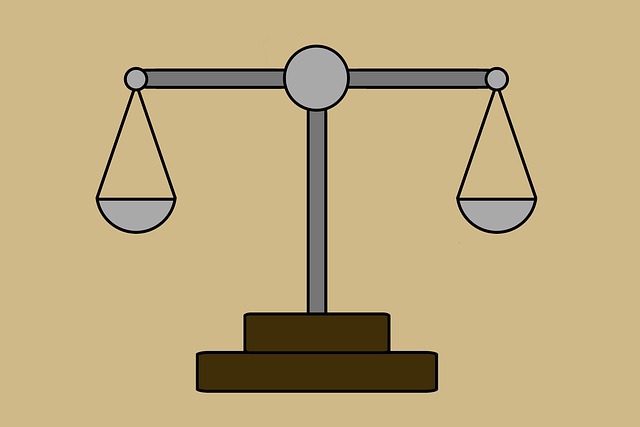Whistleblower Protection Lawsuits are vital tools for exposing illegal practices, offering robust federal and state legal safeguards. The Federal Sentencing Guidelines for Drug Offenses play a key role in these cases, considering not just the offense's severity but also the whistleblower's cooperation, potentially leading to reduced sentences or charge dismissal. Navigating these lawsuits requires strategic representation with a deep understanding of guidelines to achieve fair resolutions without compromising clients' interests.
“Uncover the intricate world of whistleblower protection lawsuits with our comprehensive guide. This article serves as a beacon for individuals navigating complex legal terrain, especially those involved in federal sentencing guidelines for drug offense cases. We explore strategic approaches and offer insights into ‘Navigating Legal Strategies in Whistleblower Protection Lawsuits.’ Understanding these protections is crucial when facing potential legal repercussions for blowing the whistle on illicit activities.”
- Understanding Whistleblower Protection Lawsuits: A Comprehensive Guide
- Federal Sentencing Guidelines for Drug Offense Cases Involving Whistleblowers
- Navigating Legal Strategies in Whistleblower Protection Lawsuits
Understanding Whistleblower Protection Lawsuits: A Comprehensive Guide

Whistleblower Protection Lawsuits are designed to safeguard individuals who expose illegal or unethical activities within their organizations. These lawsuits are governed by a complex interplay of federal and state laws, with key guidelines outlined in the Federal Sentencing Guidelines for Drug Offenses, which provide incentives for employees to come forward with valuable information. Understanding these protections is crucial, especially in high-stakes cases involving corporate and individual clients, where the stakes can be immense.
Whistleblowers often face significant personal risks when they decide to speak out against their employers. As a result, legal protections are in place to encourage them to report criminal activities without fear of retaliation. These protections extend beyond financial compensation for the whistleblower; they also include guarantees that their identities will remain confidential during jury trials, further ensuring their safety and security.
Federal Sentencing Guidelines for Drug Offense Cases Involving Whistleblowers

In cases involving whistleblowers who expose drug offenses, the Federal Sentencing Guidelines play a crucial role in shaping outcomes. These guidelines provide a framework for judges to determine sentences, offering a complex interplay of factors that can influence the fate of individuals reporting illegal activities. The process begins with a thorough understanding of the whistleblower’s role and their motivation to come forward. This is particularly significant as it distinguishes these cases from traditional drug crime scenarios, where leniency or harsher punishments are often determined by the severity of the offense alone.
The Federal Sentencing Guidelines for Drug Offenses consider various elements, including the level of cooperation provided by the whistleblower during all stages of the investigative and enforcement process. This may result in a winning challenging defense verdict, leading to the complete dismissal of all charges. Such outcomes highlight the importance of recognizing whistleblowers’ contributions and ensuring their protection throughout legal proceedings, fostering an environment where individuals feel empowered to expose criminal activities without fear of retaliation.
Navigating Legal Strategies in Whistleblower Protection Lawsuits

Navigating Legal Strategies in Whistleblower Protection Lawsuits requires a nuanced understanding of both federal laws and specific guidelines, such as the Federal Sentencing Guidelines for Drug Offenses. When corporate and individual clients face potential whistleblower protection lawsuits, they must be aware that these cases span all stages of the investigative and enforcement process. A strategic approach is key to achieving extraordinary results.
Whistleblower protections are designed to encourage individuals to come forward with information about illegal or unethical activities within organizations. Legal teams representing both whistleblowers and targeted entities need to be adept at interpreting and applying these laws, ensuring compliance while protecting their clients’ interests. This includes understanding when and how to invoke relevant guidelines, such as the Federal Sentencing Guidelines for Drug Offenses, to mitigate potential penalties and foster a fair resolution.
Whistleblower protection lawsuits play a crucial role in ensuring justice and accountability, especially in complex cases involving drug offenses. By understanding the federal sentencing guidelines tailored for such scenarios, individuals with valuable insider knowledge can come forward without fear of retaliation. This comprehensive guide highlights the legal strategies available to whistleblowers, empowering them to navigate the complexities of the legal system effectively. With the right support, whistleblowers can make a significant impact by exposing wrongdoing and contributing to the Federal Sentencing Guidelines for Drug Offenses, ultimately fostering a fairer and more transparent society.






